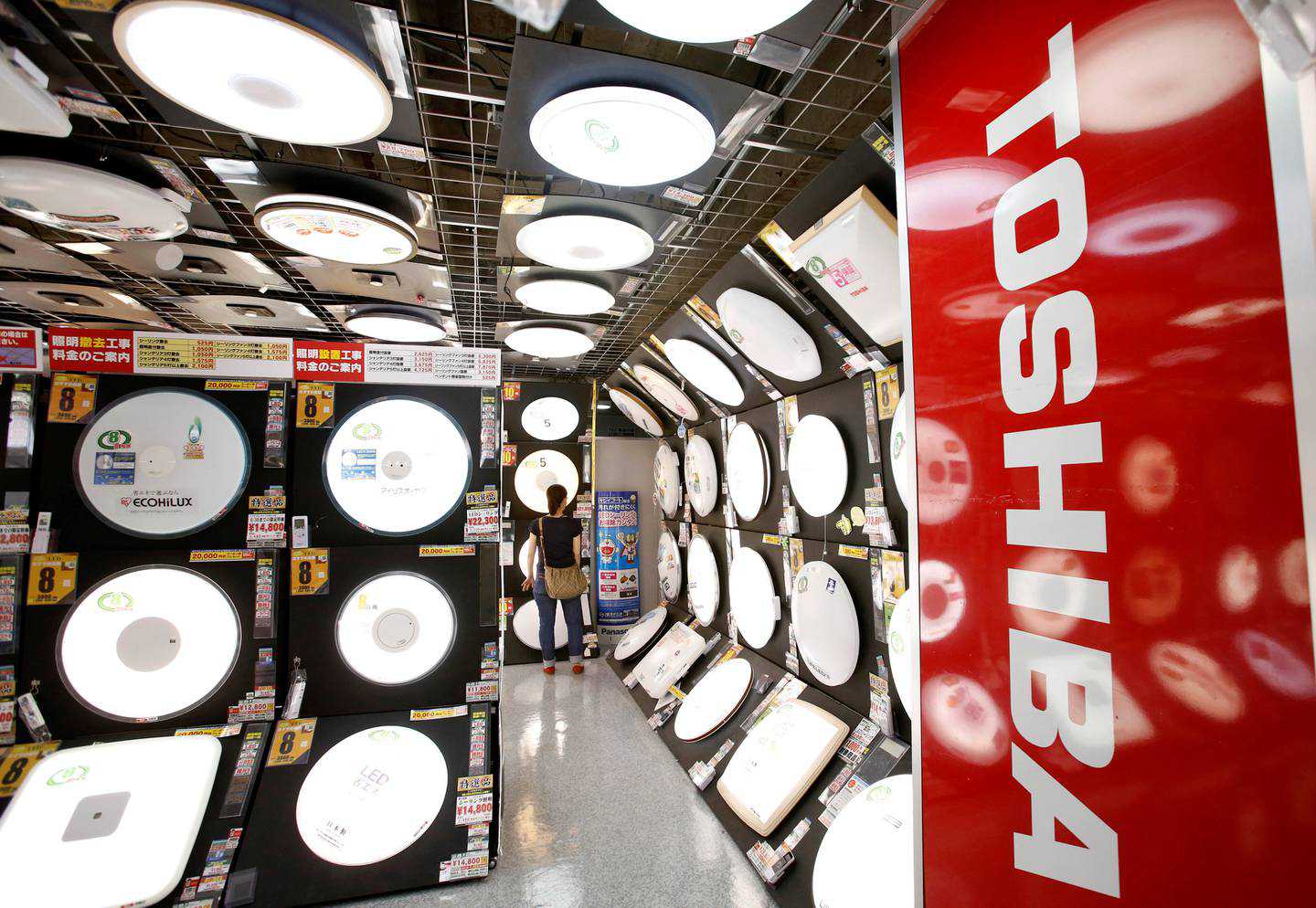Toshiba abandons three-way split amid shareholder pressure
07 February, 2022

Toshiba said it would divide into two companies and sell non-core assets, scrapping an initial three-way split that faced fierce criticism from activist shareholders.
The Japanese technology company plans to spin off the devices business, which includes semiconductors, and list it, Toshiba said on Monday in Tokyo.
It scrapped an earlier plan to carve out its infrastructure operations, which will instead remain under Toshiba.
Splitting into two companies would be cheaper and smoother than the original plan, it said.
Read More : Toshiba spins off energy, computer device units
Toshiba also designated Toshiba Tec, its listed electronic equipment business, as a non-core business, it said, though it stopped short of saying it would sell the unit. The company will also use 300 billion yen ($2.6bn) of excess capital for shareholder returns over two years, it said.Shares of memory-chip business Kioxia Holdings will continue to be held by Toshiba, it said, but the company will seek to monetise the shares “immediately” and return proceeds to shareholders. Kioxia has been pursuing an initial public offering, but has also been reported to be in talks to merge with Western Digital.
Toshiba has requested an IPO of Kioxia as soon as possible, chief executive Satoshi Tsunakawa said at a briefing in Tokyo on Monday.
Toshiba will also sell a 55 per cent stake in air-conditioning business Toshiba Carrier to its US joint venture partner Carrier Global for about 100bn yen, it said earlier Monday.
Toshiba shares erased earlier losses to jump as much as 4.5 per cent after the plan was announced. Shares in Toshiba Tec surged as much as 15 per cent, the most since 2016.
The new plan is “more logical given the overlap in semis and devices,” said Justin Tang, head of Asian research at United First Partners. The proposal offers more synergy than before, while investors should welcome the clarity over Toshiba Tec, he said.
Toshiba, once among Japan’s most revered companies, has been in crisis mode for years due to repeated scandals and management missteps. It invented flash memory for computing, but had to sell control of its crown jewel semiconductor business to pay for a disastrous expansion in nuclear power.
That deal opened the door to activist investors who have pushed for change. They include Effissimo Capital Management and 3D Investment Partners, which are the two largest shareholders with 10 per cent and 7.6 per cent stakes respectively, according to data compiled by Bloomberg.
Mr Tsunakawa said last year he believed the three-way split, into infrastructure, memory chips and devices entities, was best for the company and shareholders.
But some of Toshiba’s largest shareholders pushed back strongly against the plan, with 3D Investment opposing it and requesting that a coming vote on it would require a two-thirds majority. Farallon Capital Management, another large shareholder, backed 3D’s calls.
Mr Tsunakawa on Monday denied that the changes were prompted by pressure from activists.
He also suggested that a forthcoming vote on the plan at an extraordinary shareholders meeting set to be held by the end of March would require only a simple majority, though he added no decision had yet been made. Toshiba has yet to announce when the EGM will be held.
Source: www.thenationalnews.com
TAG(s):
